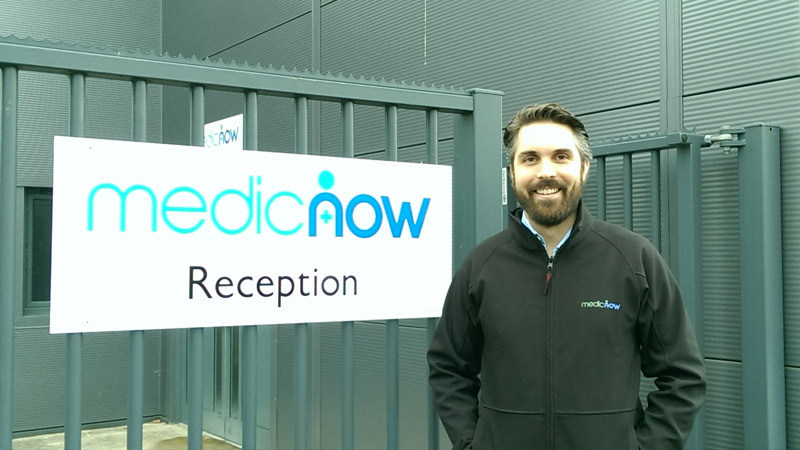In this article, where we focus on influential people who are helping to shape the profession, we feature David Cranmer who is the CEO of Medic Now, a specialist recruitment agency providing ambulance professionals to the NHS and private sector on a temporary and permanent basis.
What is your professional background?
I began my career in management consultancy - helping clients to solve issues, create value, maximise growth and improve business performance. I worked on some really interesting assignments including an outsourcing project in India which meant working and living in Bangalore for six months! It was stressful and time intensive but I developed some great business skills which proved invaluable when I started my own business.
My inroad into the ambulance sector came in 2009 when I had an opportunity to co-form a patient transport business with some exceptional people including two former ambulance chief executives. It was a great journey culminating in the company’s sale in 2011. This then led to me starting my current business – Medic Now.
As a newcomer to the sector I’ve actively sought to surround myself with knowledgeable clinicians to help me shape our offering to clients and contractors. I have a huge respect for the UK ambulance service.
What do you believe are the biggest challenges and opportunities facing the ambulance sector at the present time?
Clearly the national shortage of paramedics, financial constraints and change to demand profile will continue to pose significant challenges to the ambulance sector in terms of achieving response targets and delivering appropriate clinical care.
The rates of attrition are also challenging as the number of frontline staff leaving ambulance services has doubled in the last five years. Unison recently reported that 91 per cent of ambulance clinicians are suffering from stress. ‘Burnout’ is a serious issue which needs due care and attention as it risks damaging employers' reputations, vital to ongoing recruitment and retention.
The growth in new and exciting opportunities for paramedics will also challenge the ambulance sector as individuals can often earn double in these new areas.
In spite of these challenges there appears to be an appetite for real change within the NHS and the spotlight is on paramedics and their wide ranging capabilities (professional problem solvers)!
However innovation is only possible with good execution. Real change requires providers to be coordinated and senior management to sustain, even initiate, relevant efforts.
What is your vision for the ambulance services?
Technology enablement will give paramedics a more varied role outside of emergency care, allowing them to act as mobile healthcare workers. As a result career paths will be varied and wide-ranging;
Technology will also improve learning and development by putting it in the hands of learners to engage when they want, where they want and how they want;
Ambulance service providers and ambulance clinicians might be unglued to focus on core competencies including treatment and transport, giving them the freedom to roam across traditional professional boundaries in the future;
An increased collaboration between employers and recruitment specialists to tackle workforce retention by offering solutions which encourage progression and offer variety;
Introduction of a skills register for providers to track and verify training records particularly across the independent sector; and
A move towards evidence based practice, practical leaning and vocational streams given the demand for paramedics.
How do you see the Independent sector contributing to the development of the paramedic profession?
By offering access, support and funding for ambulance clinicians to complete the required qualification to become registered. Also by collaborating with ambulance service providers on competency based assessment and registration to develop the profession. There are many independent providers with cutting-edge facilities and equipment which can be used to assist with training and induction, often challenging and time-consuming for the providers.
What do you see as the most important areas in which the Independent sector and the College should work together?
By supporting the career development framework put forward by the College via workforce development and promoting the needs of the paramedic community irrespective of their employer.
I also think the growth of Independent think tanks (such as The Larrey society) will help shape future EMS policies and develop the paramedic profession.
Away from work, what are your passions?
If I didn’t say my family I’d probably be a bad husband and dad! To be honest with two girls under two I don’t have a lot of time to pursue my passions (beyond them!) but I love travelling and skiing. More broadly I like to make a difference in the things that I choose to do which is why I’m fortunate that my job has become one of my passions.
